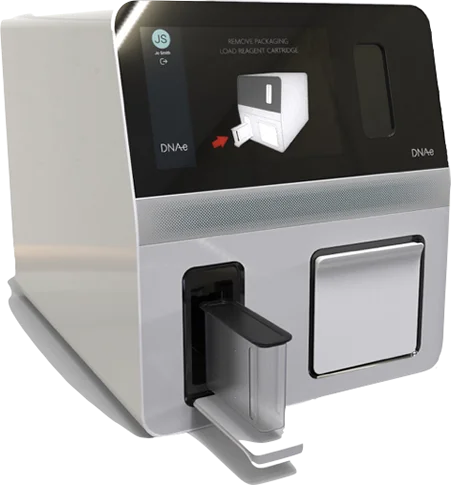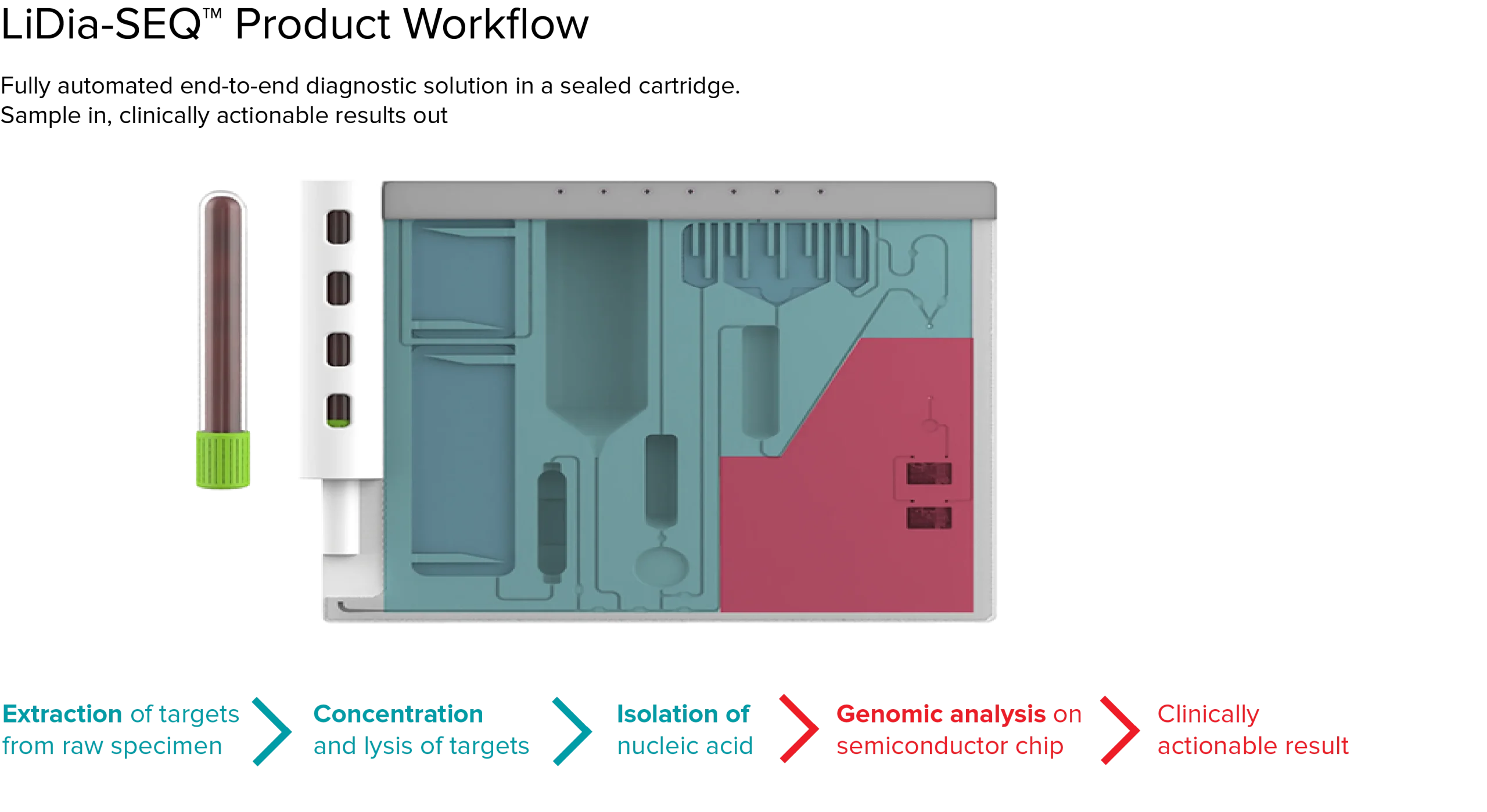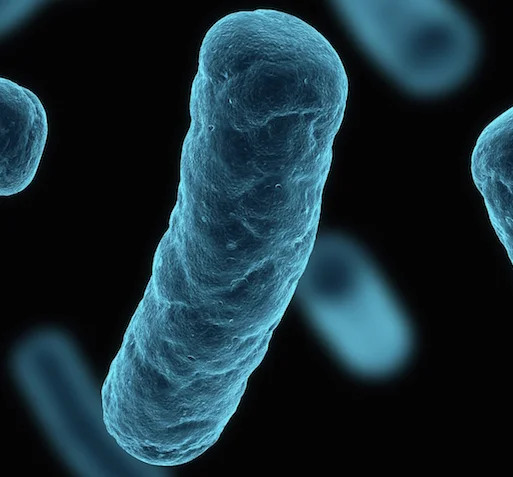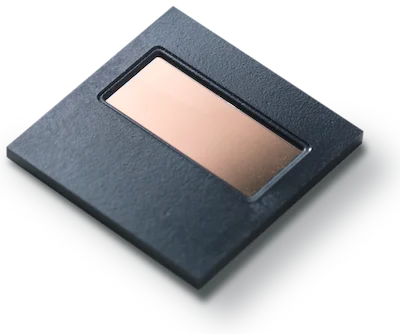

Powered by our proprietary semiconductor sequencing technology, LiDia-SEQ™ can deliver rapid, actionable results direct-from-specimen by performing a range of genomic analyses – from highly multiplexed tests to powerful next- generation sequencing (NGS).

DNAe bridges this gap with LiDia-SEQ™, a semiconductor sequencing-based diagnostic platform, where analysis and read-out take place on a single silicon chip, and run direct from specimen in a rapid, easy-to-use format. There is no need to measure optical signals or use lasers and microscopes. The system can perform a range of genomic analyses, to deliver fast, accurate and insightful diagnoses.
This is truly a breakthrough device.
Not because it offers the longest read lengths, the lowest cost per base, or the highest output per run, the traditional battlegrounds for DNA sequencers, but because it offers an entirely automated end-to-end solution that rapidly delivers clinically actionable results, without high start-up and running costs or the need for specialized users and labs.

For Research Use Only. Not for use in diagnostic procedures. For illustrative purposes only.
View the process

Semiconductor-based genomic detection
Our novel semiconductor sequencing technology uses a silicon transistor, the established building block of modern microelectronics, to detect nucleotides as a simple electrical signal.
As nucleotides are incorporated during the step-by-step construction of nucleic acids they release hydrogen ions which can be detected as an electrical signal. If there is no match, no hydrogen ions are released, and no signal is detected.
This method is universally applicable to sequencing of any DNA or RNA on a standard CMOS semiconductor chip. There is no need for fluorescent dyes or labels, or precision optics, which make current DNA analysis equipment bulky and expensive.


Fully automated sample preparation
Our unique sample preparation system is designed to enable complex applications where multiple targets are present in a single sample.
The system is being developed alongside our first test, a groundbreaking test which detects and identifies pathogens that lead to sepsis from whole blood specimens.
Sample Preparation System
- A standard 10 mL green-top Vacutainer™ containing whole blood is loaded into a single-use cartridge.
- The cartridge is inserted into the instrument.
- The clinical specimen is processed using a proprietary mixture of immunomagnetic beads that specifically and rapidly extract bacterial and fungal pathogens at concentrations as low as 1 CFU/mL.

The system is being developed alongside our first test, a groundbreaking test which detects and identifies pathogens that lead to sepsis from whole blood specimens.
By providing rapid actionable information to clinicians at the point-of-need, we can enable them to administer appropriate antibiotics, helping to save patients’ lives.
To eliminate the risk of false positive signals from environmental DNA contaminants in downstream identification, DNAe has developed DNA-free manufacturing processes for all cartridge reagents and materials.
Intellectual property
DNAe has developed a wide portfolio of patents and know-how around semiconductor technology, systems engineering and molecular biology for life science applications.
Since we invented semiconductor DNA sequencing using ion detection, we have created many innovative and practical solutions to speed up, simplify and enrich diagnostics at the point-of-need.
Our core patents cover the following innovations:
- Label-free pH-mediated detection of DNA and RNA using semiconductor ion sensors known as ion-sensitive field effect transistors (ISFETs)
- DNA sequencing by ISFETs through the detection of hydrogen ions released from nucleotide incorporation
- Highly sensitive sample preparation
- On-cartridge sequencing workflows
- Novel, low power electronic interfacing techniques
- pH-based methods for simultaneous amplification and detection of nucleic acids.
Licensees
DNAe has granted limited, non-exclusive licenses to certain patents to a small number of life science companies, including Ion Torrent (now part of Thermo Fisher Scientific). As a result, our technology is now validated for next-generation sequencing applications in laboratories around the world. DNAe retains certain exclusive rights to its technologies.

